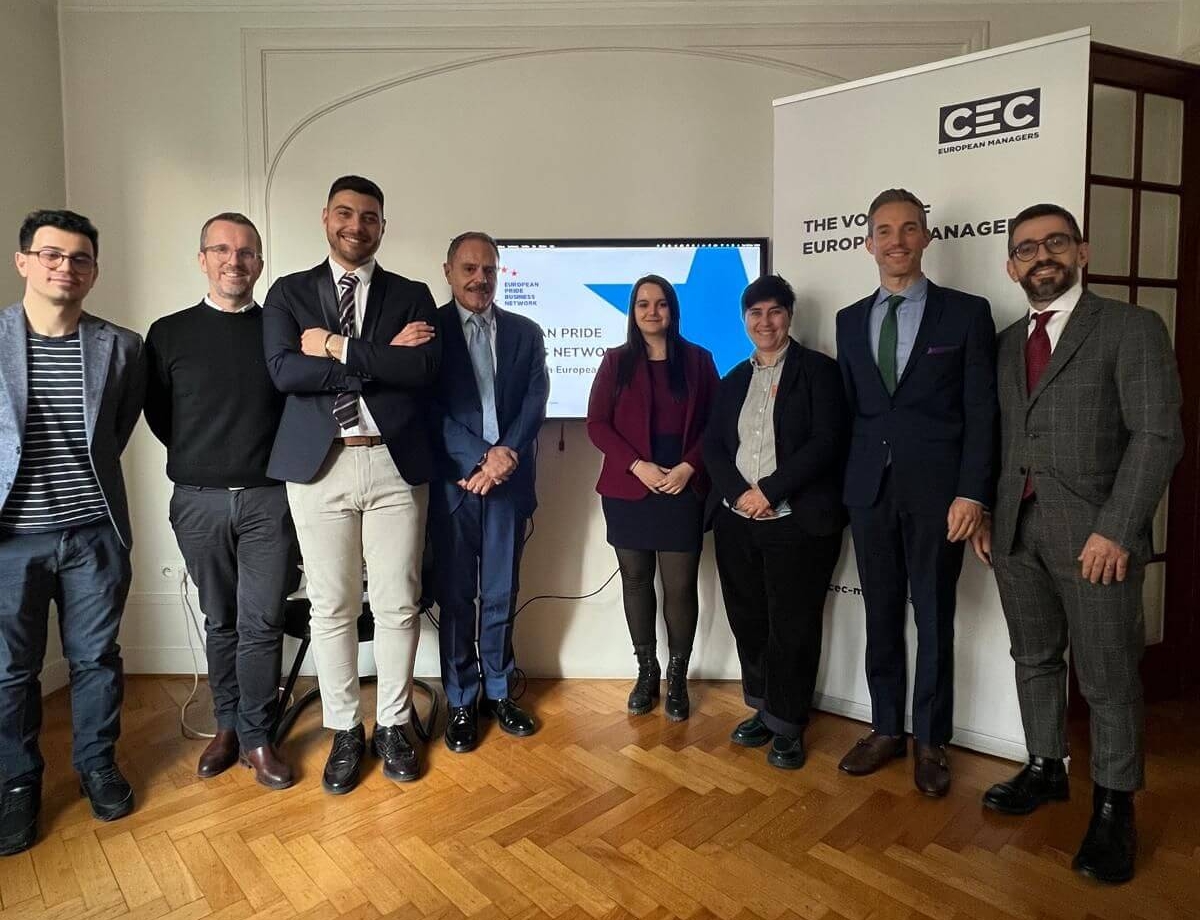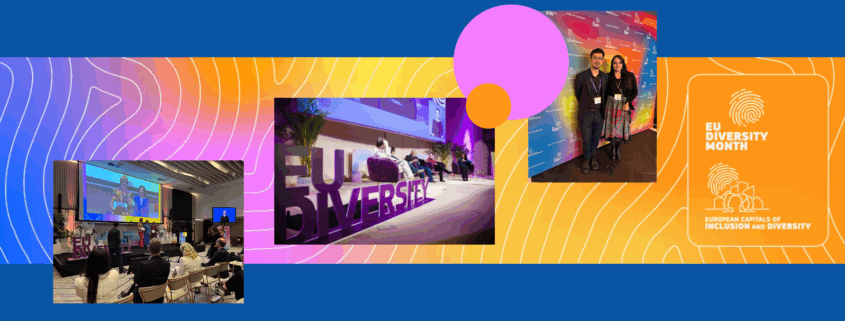European Capitals of Inclusion Award Celebrates Local Leadership
The European Union reaffirmed its commitment to equality, inclusion, and human dignity on Tuesday during a landmark event in Brussels marking the official opening of European Diversity Month 2025 and the announcement of the winners of the European Capitals of Inclusion and Diversity Award.
Held at the Hotel Cardo in the heart of the EU capital, the event gathered high-level representatives from EU institutions, national governments, local authorities, companies, and civil society to celebrate the champions of inclusion across Europe and to emphasize the strategic importance of diversity in times of growing societal challenges.
From opening speeches to policy reflections and inspirational stories, the event showcased how diversity is becoming a defining element of Europe’s social and economic fabric.
The afternoon’s programme spanned powerful addresses, expert panels, and a prestigious awards ceremony, concluding with a networking reception attended by participants across the continent.
What are the European Diversity Capitals and Diversity Charters?
The European Capitals of Inclusion and Diversity Award recognises the work done by cities, towns, or regions in Europe to promote inclusion and create discrimination-free societies.
The European Diversity Charters help EU public and private sector organisations design and implement effective diversity and inclusion policies.
By signing the European Diversity Charter, organisations make a public commitment to promote diversity and inclusion in the workplace.
Charters are organised at national level, with a Charter per country. Together they have over 17.000 signatories (private and public organisations, NGOs, trade unions), covering more than 17 million employees.
A Vision of Unity and Progress
Opening the event, Irena Moozová, Deputy Director-General of the Directorate-General for Justice and Consumers, set the tone with a resounding affirmation:
Promoting diversity is not a marginal action. It matters every day, and it is key on our path toward a more competitive and inclusive European Union.
Moozova highlighted the value of cooperation with social partners and stressed the progress achieved in supporting persons with disabilities and fostering mental health and well-being in the workplace.
“It is crucial for us that social partners and associations engage in consultations. Together with Member States, we have made progress”
Irena Moozavá
Deputy Director-General of the Directorate-General for Justice and Consumers
acknowledging the role of partners like CEC European Managers in shaping inclusive strategies.
Defending EU Values from the Ground Up
In a passionate address, the Vice-President of the European Parliament drew attention to the crucial role towns and regions play in upholding the EU’s fundamental values.
The EU stands on values that unite us—freedom, dignity, solidarity, justice. These are protected not just in Brussels, but in our cities, our communities.
Younous Omarjee
VP European Parliament
“It is in our municipalities where resistance against extremism, especially far-right ideologies, takes root. We must preserve these values peacefully, yet with resolve.”
The Vice-President stressed that equality, LGBTI+ inclusion, and support for persons with disabilities begin locally, and praised smaller municipalities for their pivotal role in shaping inclusive Europe.
National Voices on Equality
Magdalena Dropek of Poland’s Ministry of Equality called for a “true Union of Equality,” underlining that diversity, equity, and inclusion (DEI) are not simply ethical imperatives, but foundational European values.
Her counterpart from Spain, Ana Redondo García, echoed the sentiment:
Spain has made equality and inclusion one of its national priorities. Through concrete laws and public commitment, we aim to become a more egalitarian country.
Ana Redondo García
Spanish Minister of Equality
Redondo García emphasized that diversity contributes to economic growth, but warned that discrimination continues to exist in many corners of Europe. “Diversity cannot be understood in a passive way,” she said.
“It must be embraced as a force that unites and propels us forward. We must build bridges between people and territories.”
Corporate Champions of Inclusion
The event also highlighted how the private sector is stepping up. Companies from across Europe showcased their DEI initiatives: Shell Bulgaria, Reale Group in Italy, and Accenture Sweden were among those mentioned as leaders in fostering inclusive corporate cultures.
These examples reinforced a growing consensus that DEI is not only the right thing to do—it’s a competitive advantage in the modern economy.
During a panel titled “United in Diversity—Staying Strong in Defending and Promoting Our Values,” speakers tackled the challenges and opportunities of maintaining momentum on DEI.
Christophe Margaine, a board member of the European Pride Business Network and recent visitor to CEC European Managers, provided valuable insights into how businesses can practically support inclusion.
“There are plenty of ways for companies to show support for inclusion,” he said. “But non-binary and trans people still receive minimal support in many contexts. It’s not just about identity—it’s about pragmatism. Companies must move forward, even if each does so at its own pace.”
When asked about public fatigue with DEI efforts, Margaine rejected the notion. “I don’t think we’ve gone too far,” he said. “The EU’s approach has focused on quality objectives, not quotas. For example, women represent half the population—but a Black woman faces discrimination on multiple levels. We need to let our values guide the future—not opinion polls or political tides.”
A European Pride Business Network delegation, including Margaine, visited CEC European Managers some days ago in our headquarters in the European Quarter (read full article“LGBTIQ entrepreneurs are ready to grow; They just need the ecosystem to catch up”).

Exploring Unused Talent and Data-Driven Strategies
A series of working sessions followed the panel, diving deeper into practical strategies. Sessions covered topics such as Tapping into Pools of Unused Talent, Diversity as Competitive Advantage, and Data-Driven Diversity.
These sessions brought together diversity experts from NGOs, corporations, and public bodies to discuss the implementation and impact of DEI strategies.
CEC European Managers engaged in informal conversations with participants following the Data-Driven Diversity session, moderated by Laure Amoyel of the Luxembourg Ministry of Equality and Diversity.
The session explored the complexities of collecting and interpreting DEI-related data. The discussion revealed a consensus on the need for sensitive, well-designed tools to assess diversity in the workplace and track inclusion progress without reinforcing existing biases.
CEC took this opportunity to introduce its #BeyondBias campaign (go to the website here), share insights about managers’ roles in shaping inclusive work environments, and present the survey tools developed under its EU-funded projects.

Participants exchanged views on the barriers to gathering DEI data, and many identified GDPR compliance and unconscious bias as key concerns.
Recognizing Europe’s Inclusion Champions
The day concluded with the European Capitals of Inclusion and Diversity Award Ceremony, which celebrated cities and local authorities’ leadership in building inclusive communities. Awards were presented across different categories and population sizes.
The awards were presented by Hadja Lahbib, Commissioner for Equality, Preparedness and Crisis Management, and Stefan Moser, Head of Unit for Housing at DG Energy. A video message from Dan Jørgensen, Commissioner for Energy and Housing, further underlined the importance of housing as a priority in promoting social equity.
Housing is more than infrastructure—it’s the foundation for equitable societies. Inclusion must be part of how we plan our cities and support our citizens.
Stefan Moser
Head of Unit for Housing at DG Energy
Katrin Krause, special envoy to the award jury from the European Committee of the Regions, underscored the significance of local governments. “It is local authorities that understand citizens’ needs best. Their actions are essential in translating EU values into real-life inclusion,” she said.
Leadership Matters: The Role of Managers in Driving Change
As the celebrations drew to a close, one message rang clear: inclusion is everyone’s responsibility, but leaders and managers have a unique role to play.
Across the public and private sectors, managers and leaders set the tone, shape policies, and implement practices that bring DEI commitments to life.
CEC European Managers, as an engaged European social partner, continues to monitor and promote these issues at EU level. With a deep understanding of the managerial role in organizational transformation, CEC advocates for strategic leadership in DEI—not only as a matter of ethics, but as a driver of cohesion, resilience, and innovation in Europe’s workforce.
As Diversity Month unfolds throughout May, the message from Brussels is clear: inclusion is not a box to check—it is a path to a better, fairer, and more united Europe.



